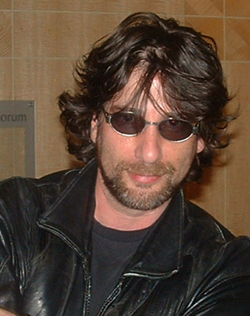“In 1927, a little-known writer of horror stories named H.P. Lovecraft tried to put into words the secret of his diabolical craft. “The one test of the really weird is simply this,” Lovecraft wrote in the introduction to “Supernatural Horror in Literature,” “whether or not there be excited in the reader a profound sense of dread and of contact with unknown spheres and powers; a subtle attitude of awed listening, as if for the beating of black wings or the scratching of outside shapes or entities on the known universe’s utmost rim.”
That’s a mouthful, and yet I swear, two decades or so ago, I had the very experience that Lovecraft describes while on an overnight bus trip from Dallas to a Christian youth camp in northern Minnesota. Most of the other teen campers flirted or gossiped or joked around. Some endured the long hours by reading Scripture, and in their own way, may have been grappling with “the beating of black wings or the scratching of outside shapes and entities.” I was mesmerized by a less prescriptive but equally god-smitten work: Stephen King’s epic of apocalypse, “The Stand.”
This year, the novel “The Stand” turns 30, and far from fading into the dustbin of bygone bestsellers, King’s great tale of plague seems more prescient than ever. Fundamentalist religion, biological weapons, monster viruses, nuclear destruction, ecological havoc, mistrust of government, the breakdown of democracy — it’s all here. The 1,153-page novel recounts the story of a nasty airborne bug that decimates the population of the United States, leaving behind a remnant to wage a battle for the soul of humanity. The children of light are drawn to Boulder, Colo., where they follow a version of Moses named Mother Abagail, a 118-year-old black woman subject to supernatural visions, while the children of darkness gravitate to Las Vegas and come under the sway of a “dark man” named Randall Flagg, who wears faded blue jeans and worn cowboy boots and can turn himself into wolf, weasel and crow.
[..] I spoke to Stephen King recently about the novel 30 years on, his new collection of short stories, religious faith, presidential politics and the possibilities of the afterlife.”
(via Salon)



